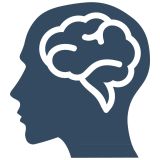In this article:
What is a Psychobiology Degree?
A psychobiology degree combines elements of psychology and biology to study the biological basis of behavior. It explores how the brain, nervous system, hormones, and genetics influence emotions, thoughts, and actions. Students in this program learn about brain structure and function, neurobiology, genetics, and how these biological factors contribute to mental health, behavior, and cognitive processes.
The degree also covers topics such as psychopharmacology (how drugs affect the brain and behavior), the role of neurotransmitters, and how environmental factors may interact with biology to affect psychological well-being. Psychobiology students typically study both normal brain function and psychological disorders, including depression, anxiety, and schizophrenia.
Program Options
Program options for a degree in psychobiology can vary depending on the institution and its specific offerings. Here are some common program options you might encounter:
- Bachelor of Science (BS) in Psychobiology: This undergraduate degree focuses on the intersection of biology and psychology, covering subjects such as neurobiology, behavioral science, and psychopharmacology. It prepares students for entry-level positions in research, healthcare, or mental health services.
- Bachelor of Arts (BA) in Psychobiology: Similar to the BS, but with a more humanities-focused approach, this program combines the study of biological sciences with psychology. It may include more courses in social science or philosophy while still offering a solid foundation in neuroscience and behavior.
- Master of Science (MS) in Psychobiology: A graduate program for those who want to deepen their understanding of the biological basis of behavior, this program typically includes advanced study in areas such as neuropsychology, genetics, and mental health disorders.
- Doctor of Philosophy (PhD) in Psychobiology: This advanced program prepares students for careers in academic research, clinical practice, or specialized fields like neuropsychology. It focuses heavily on research and requires students to contribute original findings to the field.
- Doctor of Psychology (PsyD) in Clinical Psychobiology: A professional doctorate for students interested in applying psychobiology to clinical practice, especially in mental health settings. This program typically focuses on diagnosing and treating psychological disorders with an emphasis on the biological factors at play.
Skills You’ll Learn
In a psychobiology degree, students acquire a mix of skills from both psychology and biology. Key skills learned include:
- Research Skills: Ability to design, conduct, and analyze scientific studies, especially those focused on brain function, behavior, and psychological disorders. This includes proficiency with research methods, statistical analysis, and data interpretation.
- Neurobiological Knowledge: Understanding how the brain and nervous system influence behavior, emotions, and cognitive functions. Students learn about neurotransmitters, brain anatomy, neural pathways, and how various biological systems affect mental health.
- Psychopharmacology: Knowledge of how medications and drugs interact with the brain and behavior, including the effects of antidepressants, antipsychotics, and other therapeutic drugs.
- Behavioral Science Understanding: Insight into how behavior is shaped by biological, genetic, and environmental factors. Students gain skills in observing and analyzing behavior in both normal and disordered contexts.
- Critical Thinking and Problem Solving: The ability to assess complex biological and psychological issues and think critically about interventions or treatments. This skill is particularly useful in clinical or research settings.
- Communication Skills: Proficiency in communicating complex biological and psychological concepts to diverse audiences, whether in research reports, presentations, or patient interactions.
- Knowledge of Mental Health Disorders: Understanding the biological and psychological roots of various mental health conditions such as depression, anxiety, and schizophrenia, and how these affect behavior.
What Can You Do with a Psychobiology Degree?
With a psychobiology degree, graduates can pursue a variety of careers in research, healthcare, or mental health fields, often focusing on the connection between biology and behavior. Some potential career options include:
- Psychobiologist: Conduct research on how biological processes affect behavior, emotions, and mental health. This can involve working in academic or government research labs, studying topics like brain function, genetics, or the impact of environmental factors on behavior.
- Neuropsychologist: Work in clinical or research settings to study how the brain and nervous system impact cognition, emotions, and behavior. Neuropsychologists assess and treat conditions related to brain injuries or neurological disorders.
- Clinical Psychologist: Specialize in diagnosing and treating mental health disorders while considering the biological and physiological factors contributing to those conditions. This career often involves working with individuals in therapy or counseling settings.
- Psychiatric Technician: Assist psychiatrists and other mental health professionals in treating patients with mental health issues by performing tasks such as taking vital signs, administering medications, and monitoring patients.
- Genetic Counselor: Help individuals or families understand how genetics may influence the risk of mental health disorders or brain diseases, using knowledge of genetics and psychology to guide patients through their options.
- Behavioral Therapist: Work with patients to modify or change problematic behaviors, often focusing on disorders like anxiety or autism. A psychobiology degree can provide the foundation for understanding how biological factors influence behavior.
- Health Educator: Educate communities about mental health, wellness, and the biological aspects of mental health issues, promoting healthy lifestyles and awareness about biological influences on behavior.
- Neuroscientist: Specialize in understanding the structure and function of the brain and nervous system, often working in academic or healthcare research to develop better understanding and treatments for neurological disorders.

